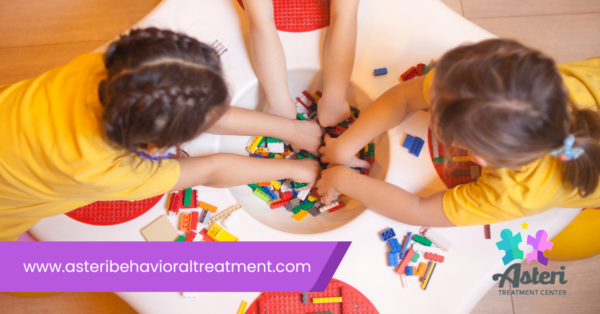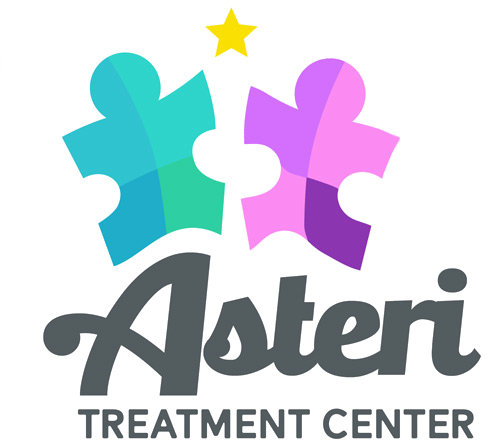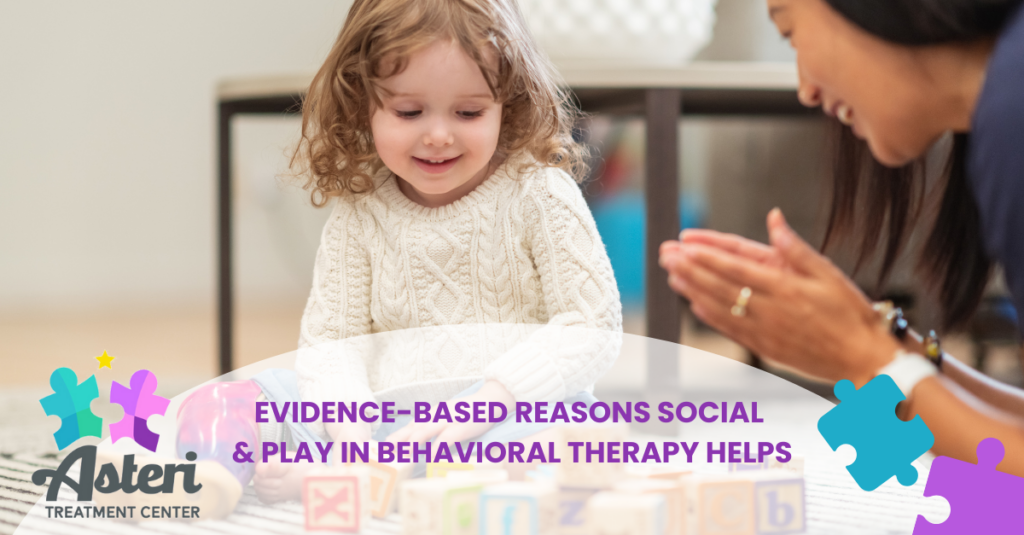At Asteri Treatment Center, we understand that children often learn best when they’re engaged in activities that feel natural and enjoyable. Integrating social and play skills development into behavioral therapy isn’t just fun—it’s a scientifically supported approach that fosters growth in communication, emotional regulation, and interpersonal relationships.
There are evidence-based reasons why incorporating social and play elements into behavioral therapy is so effective for children. When you contact us for a free consultation, we’ll go into greater detail about how they could help your child.
Enhances Communication Skills
Play-based behavioral therapies provide a low-pressure environment where children can practice verbal and non-verbal communication. According to research, structured play activities help children:
- Expand vocabulary through interactive games
- Learn turn-taking in conversations
- Interpret facial expressions and body language
Encourages Emotional Regulation
Children often struggle to understand and manage their emotions. Traditional talk therapy can feel overwhelming, but play-based therapy offers a safe, interactive way for them to explore feelings. Research shows that play therapy helps children:
How Play Supports Emotional Regulation
- Safe Emotional Expression: Children may not have the words to describe frustration, sadness, or anxiety. Through play, they can act out scenarios using dolls, action figures, or role-playing, allowing therapists to guide them in labeling and processing emotions.
- Teaches Coping Strategies: Games that incorporate mindfulness, deep breathing, or problem-solving (e.g., “What should this character do when they feel angry?”) help children practice calming techniques in a fun, low-pressure way.
- Reduces Avoidance Behaviors: Some children shut down when asked direct questions about emotions. Play lowers resistance, making it easier for them to engage in emotional learning.
- Improves Frustration Tolerance: Board games, cooperative play, and turn-taking activities teach patience and how to handle disappointment—key skills for emotional regulation.
Those are just some of the ways they can help. Studies have found that play-based interventions significantly reduced emotional outbursts in children with ADHD and autism by providing structured yet flexible ways to process feelings.
Strengthens Social Interaction
Many children with behavioral challenges find socializing difficult. Structured play helps them:
- Practice sharing and cooperation
- Understand social norms and boundaries
- Build friendships through shared activities
Reduces Problem Behaviors
Research shows that play-based interventions can decrease aggression and defiance by:
- Providing alternative outlets for frustration
- Reinforcing positive behaviors through rewards in play
- Teaching problem-solving in a controlled setting
Improves Cognitive Development
Play isn’t just social—it’s a cognitive workout. Behavioral therapies that include play can improve:
- Attention span through engaging activities
- Memory via repetition in games
- Executive functioning (planning, organizing, decision-making)
Builds Confidence & Self-Esteem
Children who struggle with social interactions or behavioral challenges often experience low self-esteem. They may feel isolated, frustrated, or “different” from peers. Our therapy incorporates play and social skill-building that can help reverse these negative self-perceptions by creating opportunities for success in a supportive setting.
How Play Boosts Confidence
- Small Wins Lead to Big Gains: Play-based therapy breaks down complex social skills into manageable steps. For example, a child who struggles with greetings might start by practicing with a stuffed animal before trying with a peer. Each small success builds confidence.
- Positive Reinforcement: Therapists use praise, rewards, and encouragement during play to reinforce effort, not just perfection. This helps children associate social interactions with positivity rather than anxiety.
- Risk-Taking in a Safe Space: Many children fear making mistakes in social settings. Play allows them to experiment—whether it’s trying a new game, speaking up in a group, or handling losing—without real-world consequences.
- Peer Validation: Group play activities let children experience acceptance from others. When a child shares a toy or tells a joke that makes others laugh, they internalize the message: “I can connect with people.”
It’s been found that children who participated in play-based social skills groups showed measurable increases in self-esteem and willingness to engage with peers compared to those in traditional therapy-only settings.

Supports Generalization of Skills
One of the biggest challenges in any therapy is ensuring children can apply learned skills outside the therapy room. Traditional drills may teach isolated behaviors, but play creates natural opportunities for skills to transfer to everyday life.
Why Play Enhances Real-World Application
- Mimics Natural Social Environments
Unlike scripted scenarios, play evolves organically—just like real-world interactions. A game of “restaurant” teaches:
• Order-taking (communication)
• Handling mistakes (emotional regulation)
• Dividing roles (cooperation) - Encourages Flexible Skill Use
Children learn to adapt behaviors across contexts. For example:
• Turn-taking in a board game → Turn-taking in conversation
• Sharing toys → Sharing ideas in class - Provides Varied Practice
Research shows skills are retained better when practiced in multiple ways. Play offers:
• Different partners (therapists, peers, parents)
• Changing rules/scenarios
• Both structured and free-play options
Provides a Fun, Engaging Approach
Therapy doesn’t have to feel like work. When children enjoy sessions, they:
- Stay motivated and engaged
- Are more likely to practice skills outside therapy
- Develop a positive association with learning and growth
Behavioral Therapy to Benefit Your Child
At Asteri Treatment Center, we integrate this therapy with play and social skill development because the research is clear: children thrive when learning feels like play.
By blending structured behavioral therapy with the natural power of play, we help children build the skills they need for a brighter, more connected future.
If you’re interested in how our programs can support your child’s growth, schedule a free consultation today.

